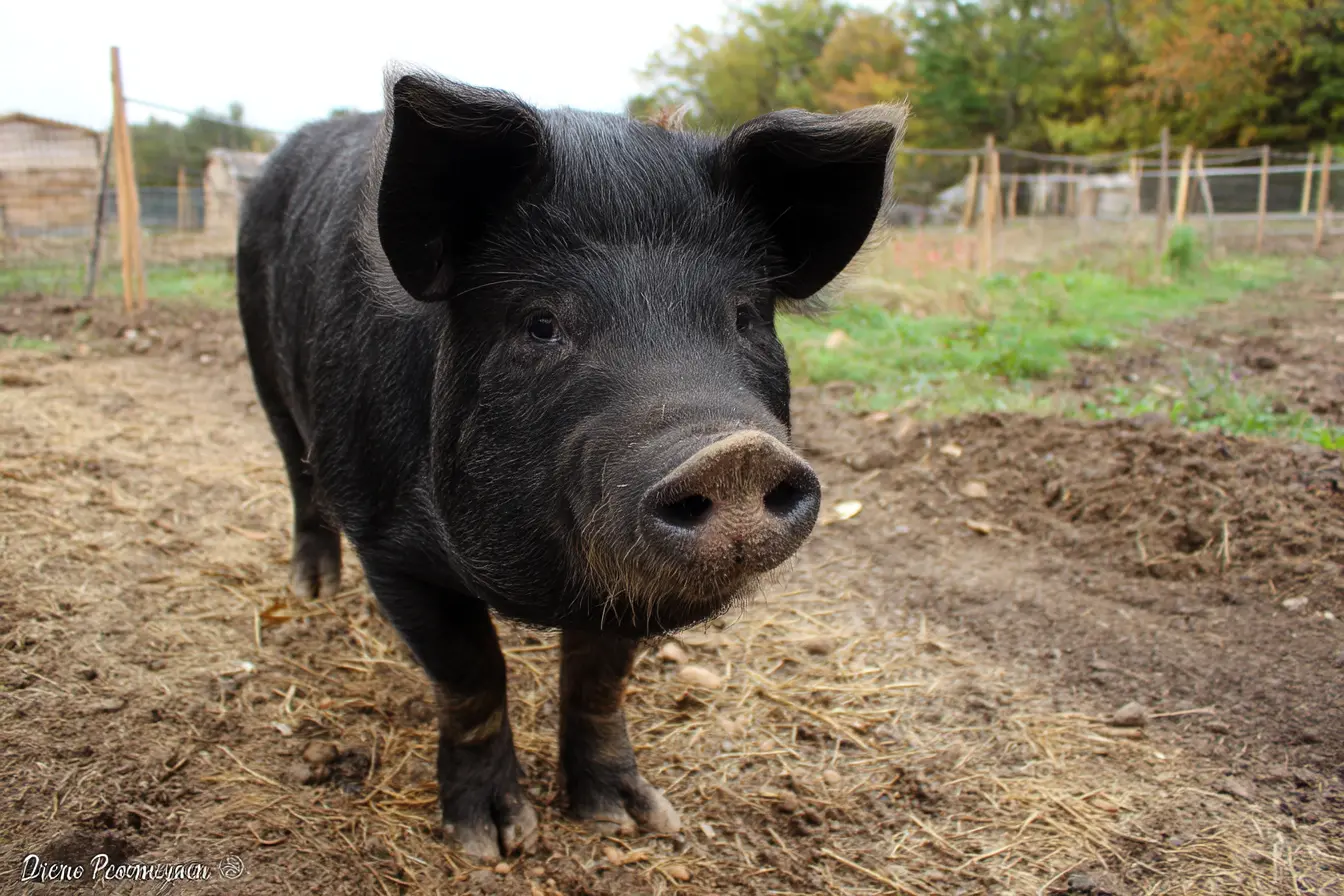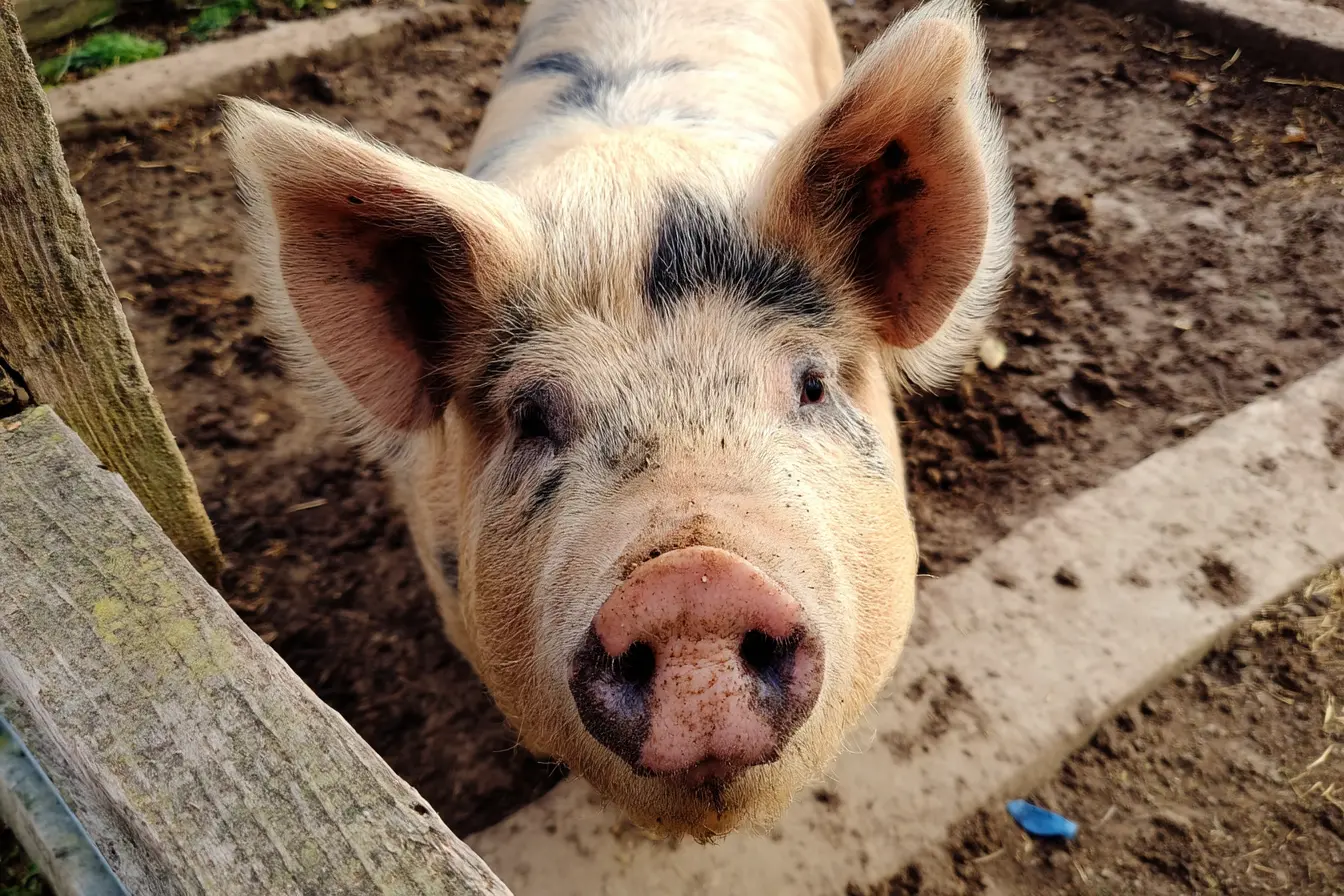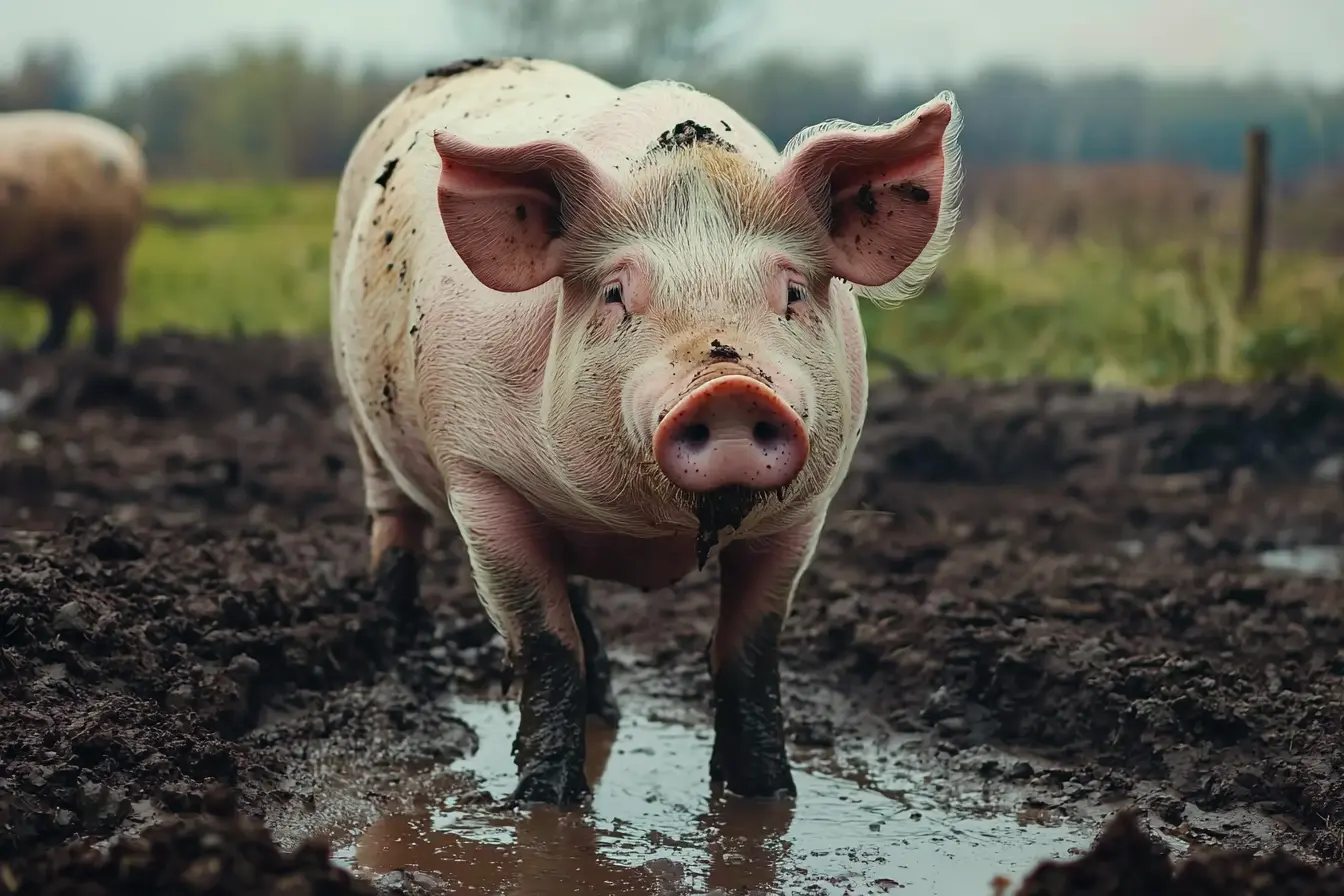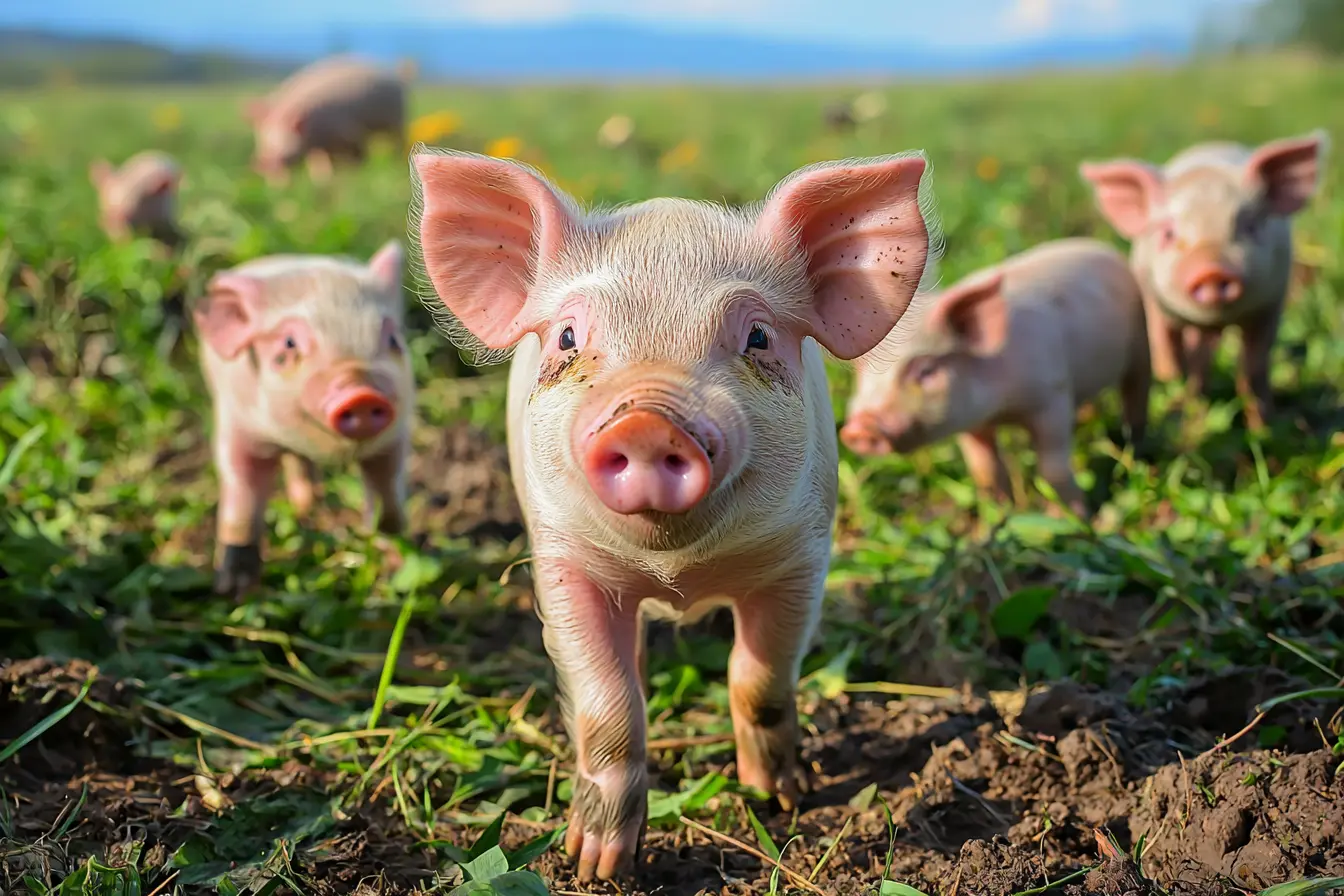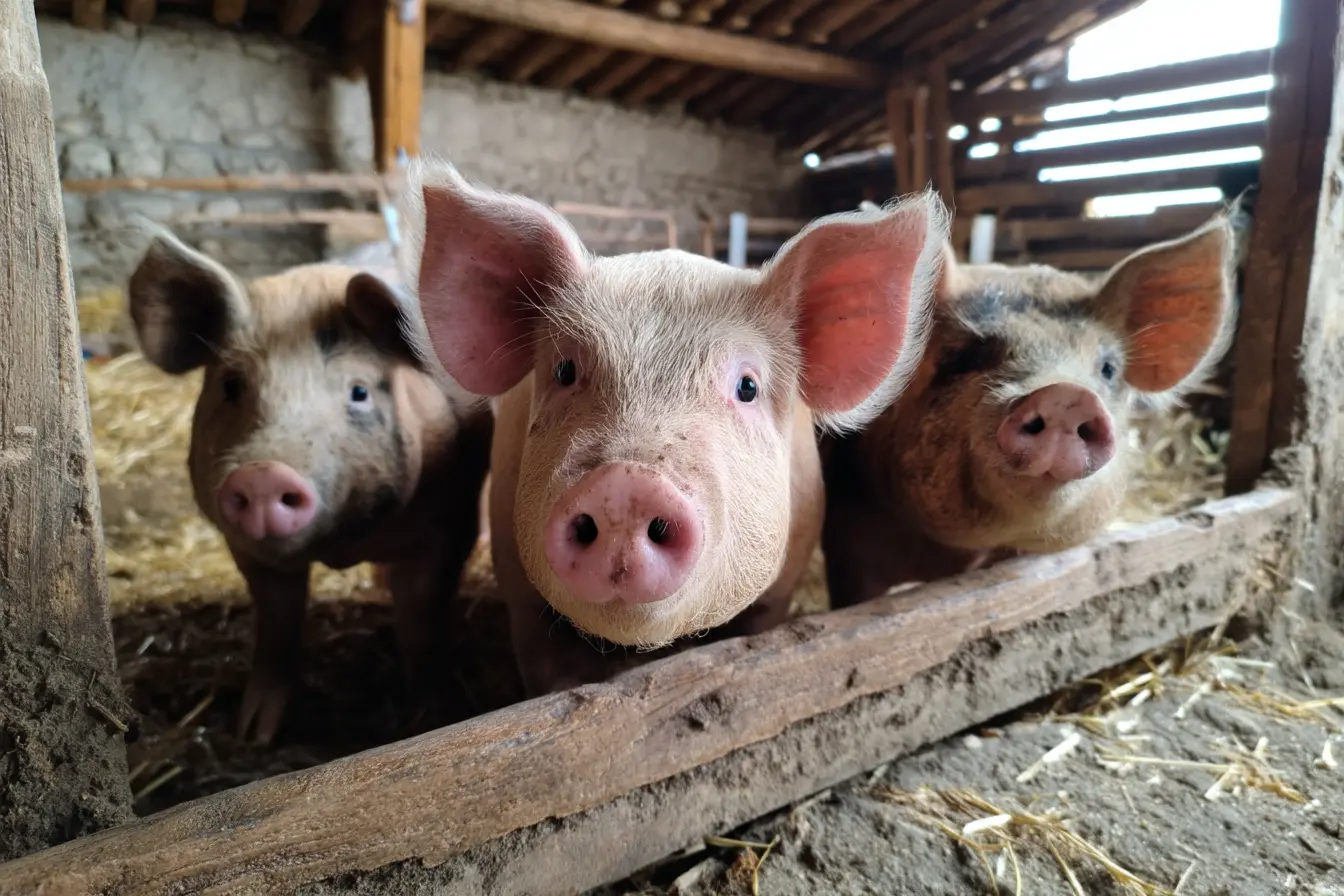
A Guide to Vaccinations and Deworming for Pigs
Keeping your pigs healthy is essential to maintaining a productive and profitable herd. Vaccinations and deworming are crucial parts of any pig health management programme. For new owners, it’s important to understand which vaccinations are required and how to control internal and external parasites to prevent illness and promote growth. This guide provides an overview of the key vaccinations and deworming requirements for pigs, along with best practices for keeping your pigs in excellent health.
Why Vaccinations Are Important for Pigs
Vaccinations help protect pigs from serious, often fatal diseases that can impact the productivity of your herd. Vaccines not only protect individual animals but also prevent the spread of diseases across the herd. The vaccination schedule you follow will depend on your farm's specific risks, so it’s important to work with your vet to tailor a plan.
Core Vaccinations for Pigs
Below are the most important diseases that pigs should be vaccinated against:
Erysipelas
Erysipelas is a bacterial disease that can cause fever, skin lesions, arthritis, and sudden death in pigs. It can also affect breeding sows, causing reproductive issues.
Recommended Schedule:
- Vaccinate piglets at 6-8 weeks of age.
- Booster every 6 months for breeding pigs.
Porcine Parvovirus (PPV)
PPV is a common cause of reproductive failure in sows. It can result in stillbirths, mummified piglets, and reduced litter sizes.
Recommended Schedule:
- Vaccinate gilts (young female pigs) before breeding.
- Booster before each subsequent breeding.
Leptospirosis
Leptospirosis is a bacterial disease that can affect both pigs and humans. In pigs, it causes reproductive issues such as abortions, stillbirths, and weak piglets.
Recommended Schedule:
- Vaccinate breeding pigs before mating.
- Booster every 6 months.
Mycoplasma Hyopneumoniae (Pneumonia)
This disease causes respiratory issues in pigs and can significantly reduce growth rates and overall herd health.
Recommended Schedule:
- Vaccinate piglets at 1-2 weeks of age.
- Booster as advised by your vet.
Porcine Circovirus (PCV2)
PCV2 can cause Porcine Circovirus Associated Disease (PCVAD), which leads to poor growth, weight loss, and increased mortality rates.
Recommended Schedule:
- Vaccinate piglets at 3-5 weeks of age.
- Booster as needed.
Swine Influenza
Swine flu is a highly contagious respiratory disease that can spread quickly through a herd, causing coughing, fever, and reduced productivity.
Recommended Schedule:
- Vaccinate breeding pigs before the farrowing season.
- Booster annually.
Clostridial Diseases (e.g., Clostridium perfringens)
Clostridial bacteria can cause severe diarrhoea in young piglets, leading to dehydration and death.
Recommended Schedule:
- Vaccinate sows before farrowing to provide immunity to piglets through colostrum.
Deworming Requirements for Pigs
Internal parasites, such as worms, can have a significant impact on pig health and productivity. Worm infestations can cause poor weight gain, diarrhoea, and reduced reproductive performance. A proper deworming programme is essential to control parasite levels.
Common Internal Parasites in Pigs
- Roundworms (Ascaris suum)
- Whipworms
- Lungworms
- Kidney worms
- Stomach worms
Common External Parasites in Pigs
- Lice
- Mites (which cause mange)
- Ticks
When to Deworm Pigs
The frequency of deworming will depend on the age of your pigs and the risk factors on your farm. Below is a general guide:
- Piglets: Deworm at 6-8 weeks of age.
- Growing Pigs: Deworm every 2-3 months.
- Breeding Sows and Boars: Deworm before farrowing or mating and then every 6 months.
Strategic Deworming Based on Faecal Egg Counts (FECs)
To avoid overusing dewormers and prevent resistance, you can adopt a strategic deworming approach based on faecal egg counts (FECs). This involves testing pig faeces to measure the parasite burden and only deworming when necessary.
Signs Your Pigs May Need Deworming
Look out for the following signs that your pigs may have a high parasite burden:
- Poor growth or weight loss
- Rough coat
- Diarrhoea
- Coughing (in the case of lungworms)
- Anaemia (pale skin)
- Lethargy
- Itching or rubbing against surfaces (a sign of mange)
If you notice these signs, consult your vet to determine the cause and appropriate treatment.
Best Practices for Vaccination and Deworming
- Consult Your Vet: Work with your vet to develop a vaccination and deworming schedule tailored to your farm’s specific needs.
- Keep Records: Maintain detailed records of all vaccinations and deworming treatments, including dates, batch numbers, and any adverse reactions.
- Use the Right Products: Ensure that vaccines and dewormers are approved for use in pigs and follow the manufacturer’s instructions carefully.
- Administer Correct Dosages: Weigh your pigs accurately to ensure you administer the correct dosage of vaccines and dewormers.
- Maintain Hygiene: Keep pens clean and dry to reduce the risk of parasite infestations and disease outbreaks.
- Quarantine New Animals: Always quarantine new pigs before introducing them to your existing herd to prevent the spread of disease and parasites.
When to Call the Vet
It’s important to know when to seek veterinary advice. Contact your vet if you notice:
- Persistent diarrhoea
- Loss of appetite or failure to gain weight
- Lameness or joint swelling
- Breathing difficulties
- Skin lesions or itching
- Neurological signs, such as tremors or head pressing
- Sudden death in any animal
Conclusion
A well-structured vaccination and deworming programme is essential for maintaining the health and productivity of your pigs. By staying proactive and working closely with your vet, you can prevent many common diseases and manage parasite loads effectively. Remember that prevention is always better than cure, so regular health checks and good farm management practices will help you keep your herd healthy and thriving.
Vets near you
Speciality vets
- Aquatics vet specialists
- Birds vet specialists
- Camelids vet specialists
- Cats vet specialists
- Cattle vet specialists
- Deer vet specialists
- Dogs vet specialists
- Equines vet specialists
- Exotic vet specialists
- Goats vet specialists
- Pigs vet specialists
- Poultry vet specialists
- Sheep vet specialists
- Small Mammals vet specialists
- Wild vet specialists
Vet facilities
- Accessible by public transport
- Blood testing
- Car park nearby
- Client car park
- Dentistry
- Diagnostic imaging
- Disabled public access
- Flea and worm treatments
- Microchipping
- Mobile services
- Neutering
- Open at weekends
- Out-of-hours service
- Referral interests
- Referrals only
- Street parking outside
- Toilets available
- Vaccination clinic
